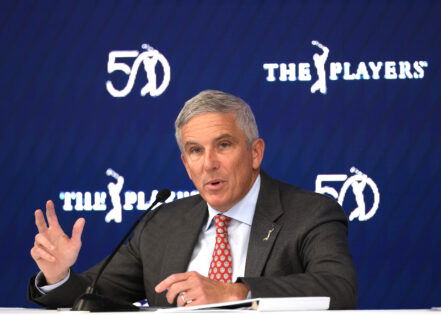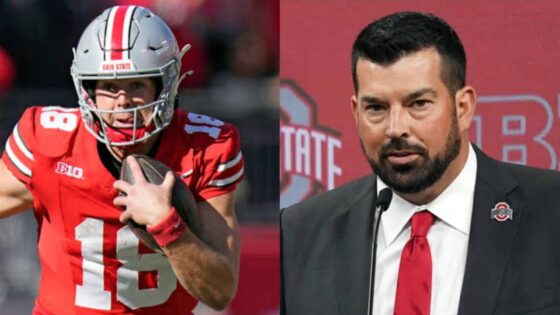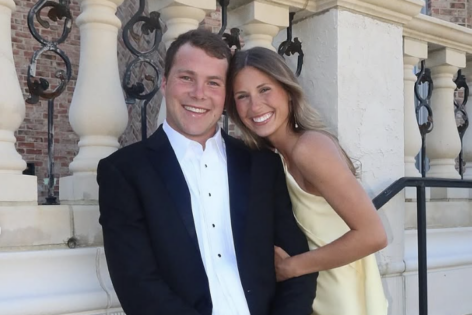For months, the golf world believed that the White House meeting was the final step in closing the gap between the PGA Tour and LIV Golf. But just when it seemed like a resolution was in sight, fresh doubts have emerged—once again throwing the merger into uncertainty. The biggest roadblock? Team golf. Despite the billions poured into LIV, the format remains a major question mark in negotiations. Golf Channel’s Rex Hoggard, who has deep ties to those involved in the discussions, revealed that team golf has become “one of the sticking points” in getting both sides to come together.
The fundamental concern? Whether it can work as a profitable business. “I would argue that up until now, it has not,” Hoggard stated. “What LIV Golf has done—I think there are some bright spots—but I am not quite sure that it has been proven, beyond a shadow of a doubt, that team golf can be profitable.” With the PGA Tour hesitant to fully embrace the format, and LIV Golf unwilling to abandon it, the standoff continues. The question now is simple: Can team golf be the future of professional golf, or will it be the very thing that keeps this merger from ever becoming a reality? Smylie Kaufman had a discussion with James Colgan on the latest episode of The Smylie Show.
When asked if the introduction of team events could be a problem, James Colgan responded, “Absolutely, I could definitely see it being a problem. I think the question is more, what are you replacing these team events with?” He elaborated that if team events were to replace significant tournaments on the PGA Tour schedule, it could become an issue. “If you are replacing some events in the tour schedule that have some annual significance and that people really care about every year—then, like Houston, for example, this week—I would, that would be an issue,” he explained. “I would not personally be supportive of that, just as a golf fan myself. But I also think the audience would probably feel that way to some extent.”
Colgan pointed out that restructuring the fall season might not be as disruptive as long as the tour continues to support the same communities and maintain connections with fans. However, he expressed concern about altering the core part of the pro golf season. “Messing with the meat of the pro golf season in order to do it? I don’t know. I think that’s what’s going to happen if a deal gets done. It sounds like to me that that’s going to be one of the sticking points,” he said. As a golf fan and journalist, Colgan admitted he would not be in favor of an extended period dominated by team golf. “For three to four weeks, if I’m on the road covering team golf and it’s not a normal PGA Tour event. What are we even doing here?” he questioned. “There’s not going to be world ranking points—well, I guess there may be. I’m not sure exactly how that would work.”
He also raised doubts about how team golf would fit into the broader picture of the sport. “I’m just generally confused about how all of this would work in the bigger picture of the sport. How are people going to be invested in this?” He emphasized that fans tune in for three key reasons: “It’s stars they care about, it’s events they care about, and it’s moments of significance. Whether that’s a historic player, something really crazy happening down the stretch of a tournament, some big comeback, or a story that’s worth investing in. That is why people watch golf.”
Finally, he posed a critical question about the viability of team golf: “If people are watching golf for those three reasons, how is team golf satisfying any of them? Just answer that question. If you can’t answer the question, then you have your answer about how the TV ratings are going to work.” But the biggest question is who really is in dire need of the merger at this point?
The post Jay Monahan & Co. Forewarned of Glaring Consequences if Merger With LIV Golf Becomes a Reality appeared first on EssentiallySports.



